Usha Akella is the author of six books, and her most recent collection was published by Sahitya Akademi in India. She earned an MSt in Creative Writing from Cambridge University and is the founder of Matwaala, the South Asian Diaspora Poets’ Collective, and the Poetry Caravan series, which brings poetry readings and workshops to women’s shelters, senior homes, educational institutions, and hospitals. She has read her poems at a number of international poetry festivals and was selected as a Creative Ambassador for Austin, Texas in 2015.
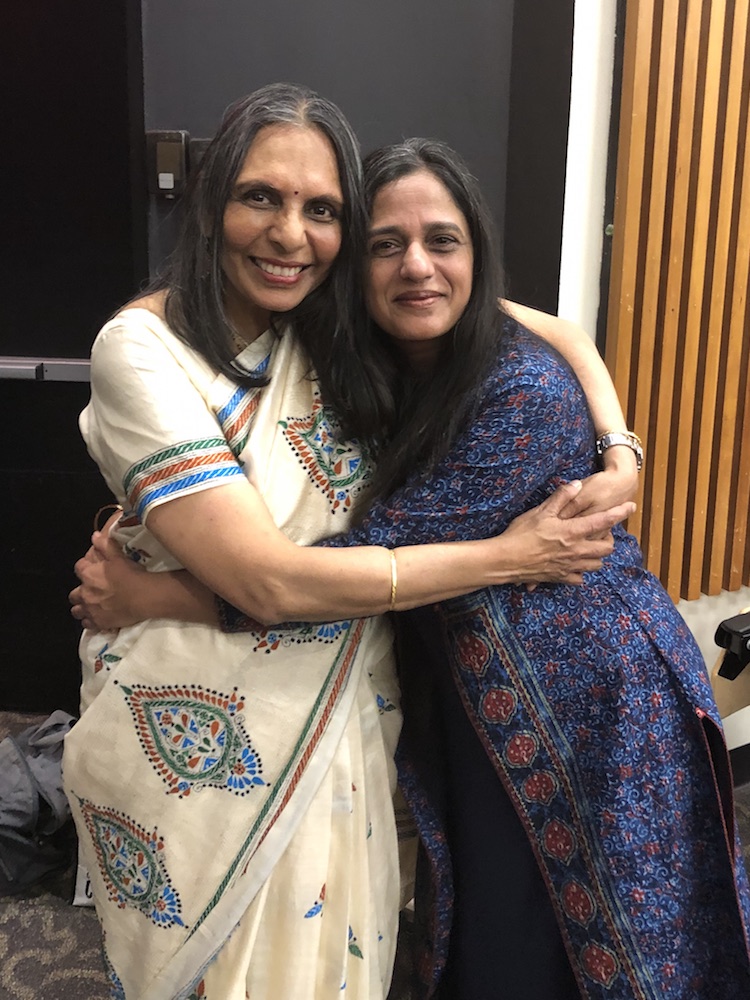 Walking toward the Red Room at the KGB Bar in the East Village for a Matwaala poetry reading, Sophie Naz and I spotted a sign with the words “Waste your money” in front of a restaurant and we burst out laughing. It’s these random things that punctuate one’s flowing experience of the tumult of New York City—and I’d say of Matwaala too. Things that are quirky, like little bolts of lightning in our pedestrian life. Like Salman Rushdie sauntering in at the opening of the Matwaala poetry festival at New York University. Like Yogesh Patel’s whale metaphor to capture the angst of immigration or Sophie Naz’s Russian hat, a prominent sartorial prop at the festival. Like the Matwaala mug, which acts as the physical award given to the poet-of-honor with their lines of poetry inscribed on it.
Walking toward the Red Room at the KGB Bar in the East Village for a Matwaala poetry reading, Sophie Naz and I spotted a sign with the words “Waste your money” in front of a restaurant and we burst out laughing. It’s these random things that punctuate one’s flowing experience of the tumult of New York City—and I’d say of Matwaala too. Things that are quirky, like little bolts of lightning in our pedestrian life. Like Salman Rushdie sauntering in at the opening of the Matwaala poetry festival at New York University. Like Yogesh Patel’s whale metaphor to capture the angst of immigration or Sophie Naz’s Russian hat, a prominent sartorial prop at the festival. Like the Matwaala mug, which acts as the physical award given to the poet-of-honor with their lines of poetry inscribed on it.
Since its inception, Matwaala has been marked by magic, community, and camaraderie, a festival that was birthed to increase the visibility of South Asian poetry. Realizing its mission could be achieved in New York City, where it broils with academic institutions and cultural ferment, Pramila Venkateswaran, our codirector, and I moved it from Austin, Texas to New York in 2017.
Eleven of us gathered at New York University, Hunter College, Nassau Community College, and the Red Room to read and share our poetry with students, faculty, and audience members. U.K. poets Yogesh Patel, the 2019 poet-of-honor, and Kavita A. Jindal joined us from across the pond. U.S. poets Indran Amirthanayagam, Zilka Joseph, Vikas Menon, Sophia Naz, Ralph Nazareth, Ravi Shankar, Yuyutsu Sharma, Vivek Sharma, and Pramila Venkatewaran visibly moved audiences with poetry textured by the issues of immigration, displacement, politics, identity, family, and experiential moments of life that have no labels.
Back in Austin, what is foremost in my heart is gratitude for so many who believe in softening borders. Kindness has no skin color. Bonnie Rose Marcus and the Readings & Workshops Program at Poets & Writers, Tim Tomlinson and Deedle Tomlinson, and Norman Spencer made so much possible. The universities that hosted us—NYU, Hunter, and NCC—gave South Asian voices a chance to be heard. Live on poetry is what I heard for three days. Your time is now.
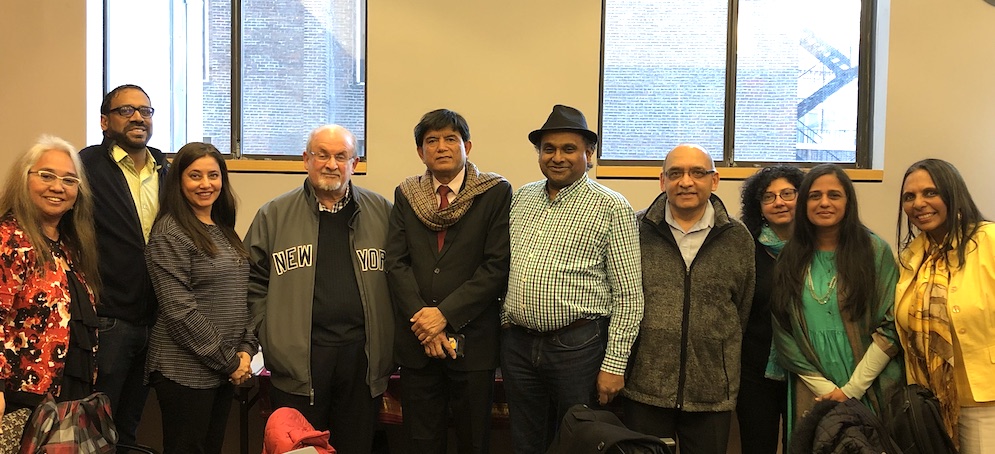
Support for the Readings & Workshops Program in New York City is provided, in part, by public funds from the New York State Council on the Arts, and the New York City Department of Cultural Affairs, with additional support from the Frances Abbey Endowment, the Cowles Charitable Trust, and the Friends of Poets & Writers.
Photos: (top) Pramila Venkateswaran and Usha Akella (Credit: Usha Akella). (bottom) left to right: audience member, Ravi Shankar, Kavita A. Jindal, Salman Rushdie, Yuyutsu Sharma, Indran Amirthanayagam, Yogesh Patel, Zilka Joseph, Usha Akella, and Pramila Venkateswaran (Credit: Usha Akella).




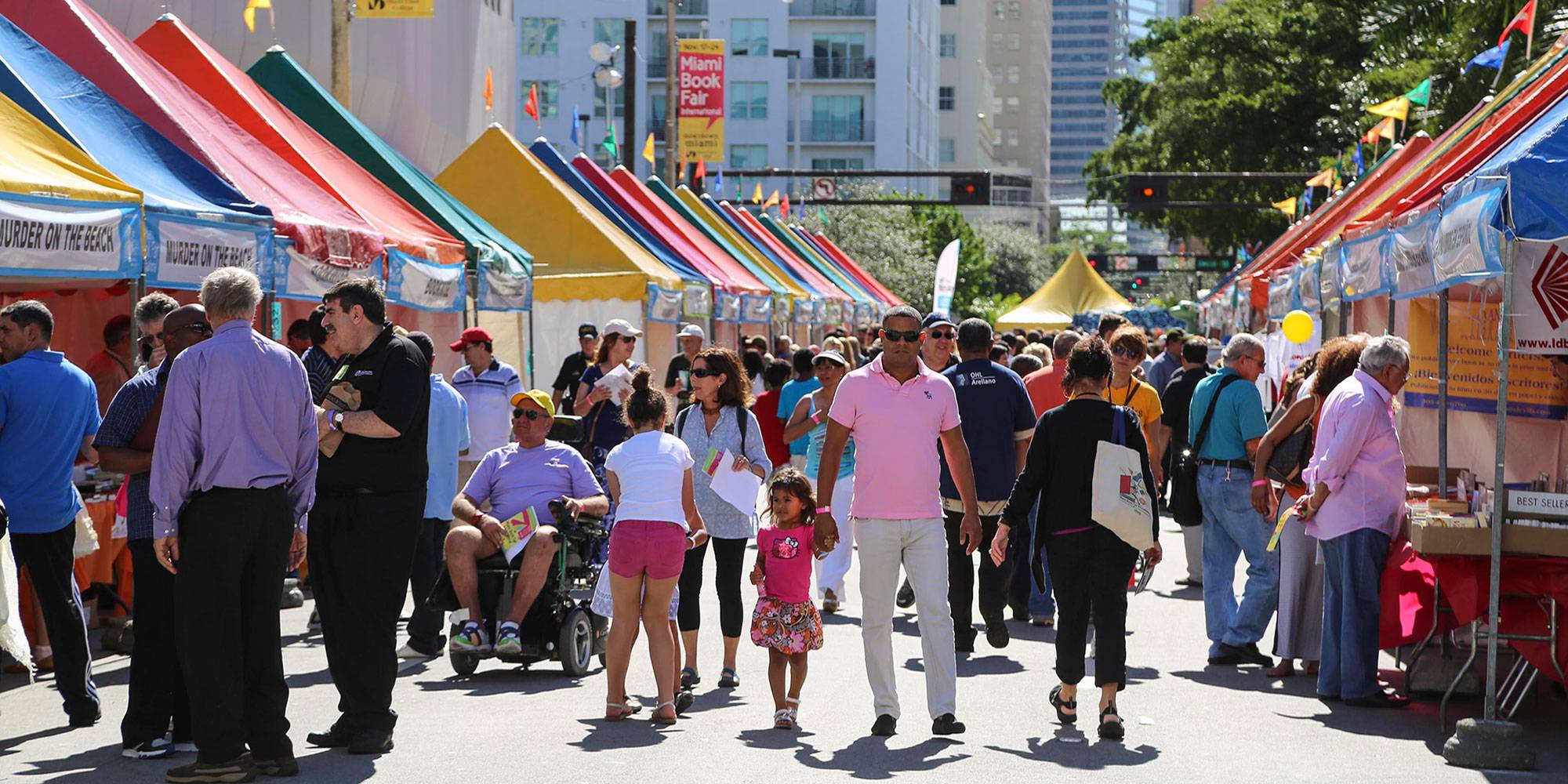
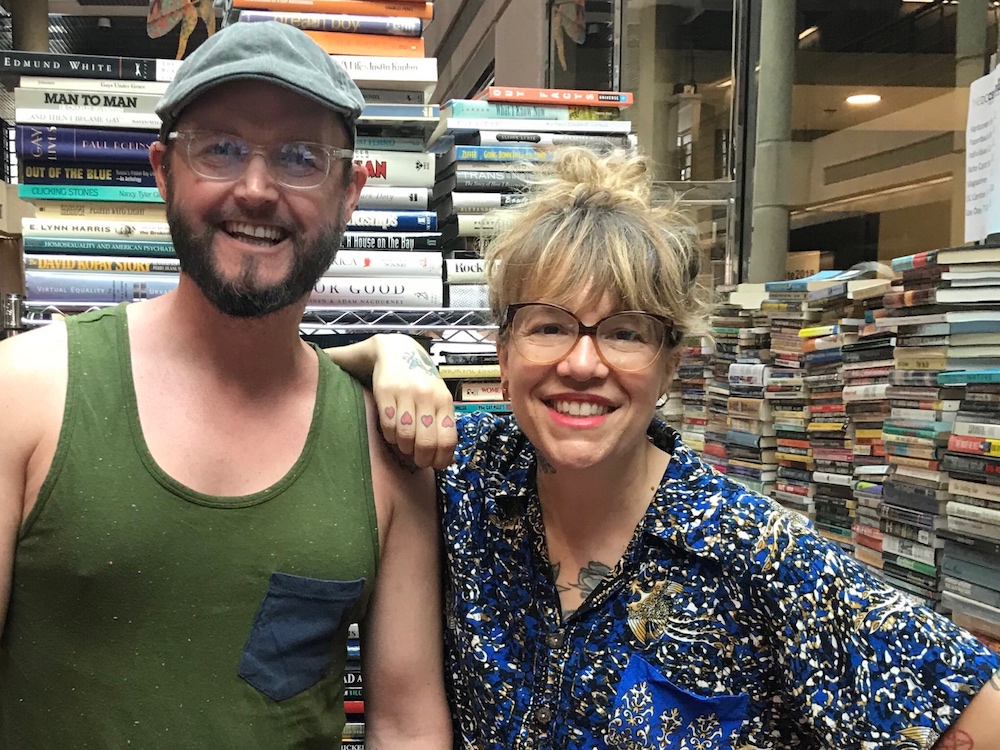 Currently I’m the community chair of the annual OutWrite LGBTQ literary festival, held annually on the first weekend in August in Washington, D.C. I inherited the position from Julie Enszer, the editor of
Currently I’m the community chair of the annual OutWrite LGBTQ literary festival, held annually on the first weekend in August in Washington, D.C. I inherited the position from Julie Enszer, the editor of 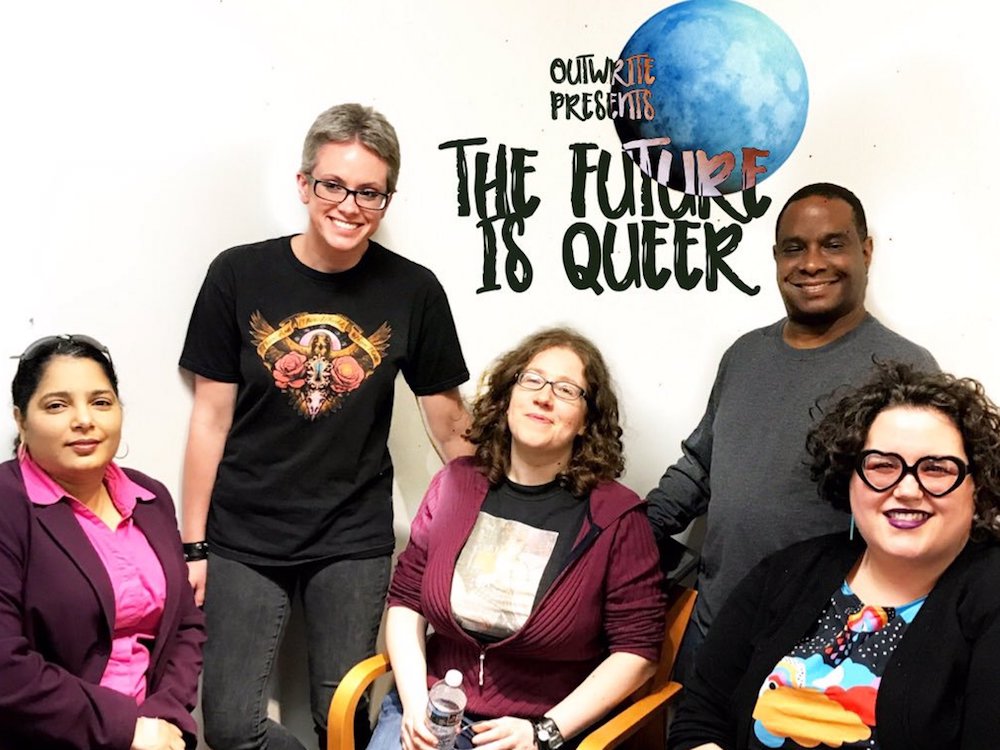 OutWrite events always remind me how beautiful and affirming representation is. Representation can become sanctuary in a reality that frequently erases, elides, or minimizes queer people’s existence, not only in relation to queerness, of course, but all the other identities that they carry with them. Honoring and showcasing those identities has been a gauntlet worth picking up.
OutWrite events always remind me how beautiful and affirming representation is. Representation can become sanctuary in a reality that frequently erases, elides, or minimizes queer people’s existence, not only in relation to queerness, of course, but all the other identities that they carry with them. Honoring and showcasing those identities has been a gauntlet worth picking up. Walking toward the Red Room at the KGB Bar in the East Village for a Matwaala poetry reading, Sophie Naz and I spotted a sign with the words “Waste your money” in front of a restaurant and we burst out laughing. It’s these random things that punctuate one’s flowing experience of the tumult of New York City—and I’d say of Matwaala too. Things that are quirky, like little bolts of lightning in our pedestrian life. Like Salman Rushdie sauntering in at the opening of the Matwaala poetry festival at New York University. Like Yogesh Patel’s whale metaphor to capture the angst of immigration or Sophie Naz’s Russian hat, a prominent sartorial prop at the festival. Like the Matwaala mug, which acts as the physical award given to the poet-of-honor with their lines of poetry inscribed on it.
Walking toward the Red Room at the KGB Bar in the East Village for a Matwaala poetry reading, Sophie Naz and I spotted a sign with the words “Waste your money” in front of a restaurant and we burst out laughing. It’s these random things that punctuate one’s flowing experience of the tumult of New York City—and I’d say of Matwaala too. Things that are quirky, like little bolts of lightning in our pedestrian life. Like Salman Rushdie sauntering in at the opening of the Matwaala poetry festival at New York University. Like Yogesh Patel’s whale metaphor to capture the angst of immigration or Sophie Naz’s Russian hat, a prominent sartorial prop at the festival. Like the Matwaala mug, which acts as the physical award given to the poet-of-honor with their lines of poetry inscribed on it.